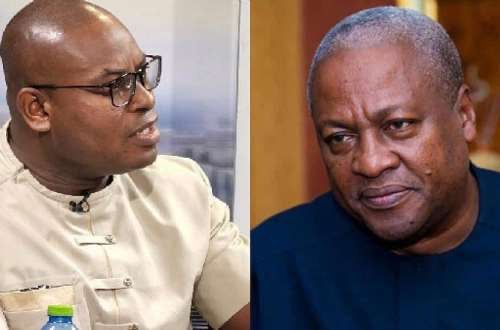The recent political climate in Ghana has been marked by a flurry of impeachment petitions and accusations, primarily targeting Chief Justice Gertrude Esaaba Torkornoo and indirectly, the Chairperson of the Electoral Commission, Jean Mensa, and her deputy, Bossman Asare. Richard Ahiagbah, the National Communications Director of the New Patriotic Party (NPP), has alleged a calculated strategy by President John Dramani Mahama to orchestrate the removal of these key figures, suggesting an underlying motive to influence the electoral process. While acknowledging the potential existence of grounds for President Mahama’s impeachment, Ahiagbah cautioned against pursuing such a course of action lightly, emphasizing the need for careful consideration and avoiding politically motivated maneuvers.
Ahiagbah’s argument centers on the timing and sequence of the petitions submitted to the Council of State. He points out that petitions calling for the removal of the Electoral Commission Chairperson and her deputy predate those against the Chief Justice. The constitutional process dictates that such petitions must first pass through the Chief Justice, who determines if a prima facie case exists before any further action, including the formation of a committee to investigate the allegations, can be taken. Ahiagbah posits that President Mahama’s perceived push for the Chief Justice’s removal stems from her role as a gatekeeper in this process. He suggests that the President seeks to replace her with someone more amenable to his objectives, facilitating the removal of the EC officials and potentially influencing the electoral landscape in his favor.
This scenario highlights the complex interplay between the different branches of government and the potential for political machinations to influence the legal process. The independence of the judiciary is paramount in upholding the rule of law and ensuring fair elections. If the Chief Justice’s removal is perceived as politically motivated, it could severely undermine public trust in the impartiality of the judicial system and raise concerns about the integrity of the electoral process. Ahiagbah’s claims, if substantiated, paint a picture of a power struggle where strategic maneuvers and petitions are being used to potentially manipulate key positions within the government.
The potential implications of these developments are significant, particularly as Ghana prepares for future elections. The perceived impartiality of the Electoral Commission is crucial for maintaining public confidence in the democratic process. If the leadership of the Commission is seen as being unduly influenced by political forces, it could lead to instability and distrust in the election outcomes. The situation calls for careful scrutiny and adherence to due process to ensure that any decisions regarding the removal of officials are based on legitimate grounds rather than political expediency. Transparency and accountability are vital to maintaining the integrity of both the judicial and electoral systems.
While Ahiagbah acknowledges the possibility of numerous grounds for President Mahama’s impeachment, he emphasizes the importance of approaching such a process with caution and avoiding its use as a political weapon. He suggests that pursuing impeachment simply for convenience or political advantage would set a dangerous precedent and further erode public trust in the government. The current situation underscores the need for a careful balance between upholding the principles of accountability and ensuring that legal processes are not manipulated for political gain.
The unfolding events in Ghana warrant close attention. The allegations of orchestrated removals and potential political interference in the judiciary and electoral processes raise serious concerns about the stability and fairness of the democratic system. The emphasis should remain on upholding the rule of law, ensuring the independence of key institutions, and promoting transparency and accountability in all governmental actions. The future of Ghanaian democracy hinges on the adherence to these principles and the avoidance of politically motivated maneuvers that could undermine public trust and jeopardize the integrity of the electoral process.


